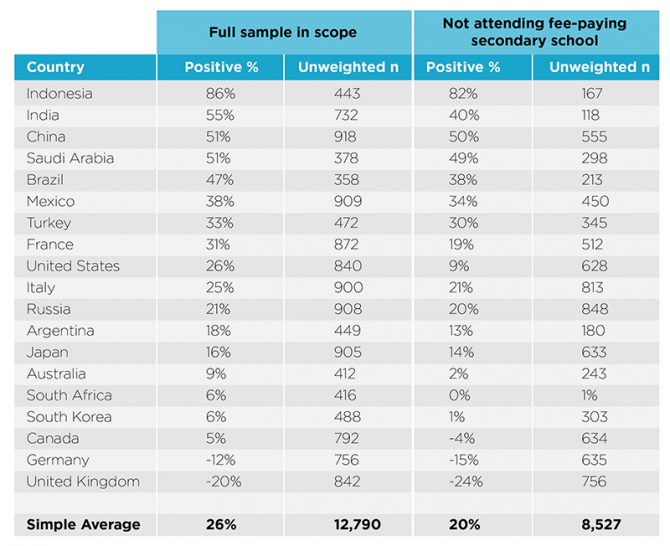 3D digital game art – Patrick Buckley
3D digital game art – Patrick Buckley
Provider: West Cheshire College
Training manager: Mike Spence, Arcademic
 Aircraft maintenance – Haydn Jakes
Aircraft maintenance – Haydn Jakes
Provider: Nottingham University
Employer: Marshall Aerospace and Defence Group
Training manager: Martin Yates
 Architectural stonemasonry – Ethan Conlon
Architectural stonemasonry – Ethan Conlon
Provider: Bath College
Employer: APS Masonry
Training manager: Marc Pate, Man of Stone

Automobile technology – Declan Porter
Provider: North West Regional College
Employer: Donagheys Garage
Training manager: Barry McDaid, North West Regional College
 Beauty therapy – Rebecca West
Beauty therapy – Rebecca West
Provider: East Sussex College
Employer: Bespoke You
Training manager: Jenna Wrathall Bailey MBE, Jenna Wrathall Bailey Training
 Bricklaying – Lewis Greenwood
Bricklaying – Lewis Greenwood
Provider: York College
Employer: PDS Construction
Training manager: Michael Burdett, York College
 Cabinet making – Owen Aldous
Cabinet making – Owen Aldous
Provider: Chichester College
Employer: Callow & Co
Training manager: Christian Notley MBE, Chichester College
 Car painting – Conor McKevitt
Car painting – Conor McKevitt
Provider: Riverpark Training
Employer: Wrights Accident Repair Centre
Training manager: Richard Wheeler, Coleg Gwent
 Carpentry – Jack Goodrum
Carpentry – Jack Goodrum
Provider: The College of West Anglia
Employer: Peter Goodrum Ltd
Training manager: Gareth Evans, University of Wales Trinity St David – Construction Wales Innovation Centre
 Chemical laboratory technician – Tonicha Roberts
Chemical laboratory technician – Tonicha Roberts
Employer: Eurofins Forensic Services
Training manager: Dr Dirk Wildeboer, Middlesex University
 Cloud computing – Eduard Adam
Cloud computing – Eduard Adam
Provider: Bradford College
Training manager: Wei Jie, University of West London
 CNC milling – Elliott Dawson
CNC milling – Elliott Dawson
Provider: Training 2000
Employer: Fort Vale
Training manager: Mike Watson, GKN Aerospace
 CNC turning – Jack McCarthy
CNC turning – Jack McCarthy
Provider: DMG Mori
Training manager: Adam Youens, Coleg Cambria
 Construction metal work – Tyler Atkinson
Construction metal work – Tyler Atkinson
Provider: Burnley College
Employer: WEC Group
Training manager: Andy Whitehouse, Dudley College of Technology
 Cooking – Sam Everton
Cooking – Sam Everton
Provider: Pembrokeshire College
Employer: Crwst Council
Training manager: Sean Owens, SO Consultancy
 Cyber security – Kyle Woodward
Cyber security – Kyle Woodward
Provider: Cardiff and Vale College
Training manager: Kamadchisundaram Sureshkumar, NESCOT
 Cyber security – Adrian Cybulski
Cyber security – Adrian Cybulski
Provider: Glasgow Clyde College
Training manager: Kamadchisundaram Sureshkumar, NESCOT
 Electrical installation – Thomas Lewis
Electrical installation – Thomas Lewis
Provider: Cardiff and Vale College
Employer: Blue Electrical
Training manager: Gareth Jones, Coleg Gwent
 Electronics – Thomas Andrews
Electronics – Thomas Andrews
Provider: Alton College
Employer: Sonardyne International
Training manager: Steven Williams, Gower College Swansea
 Floristry – Elizabeth Newcombe
Floristry – Elizabeth Newcombe
Provider: Guildford College
Employer: Self-employed
Training manager: Laura Leong
 Hairdressing – Phoebe McLavy
Hairdressing – Phoebe McLavy
Provider: Coleg Sir Gar
Employer: Morgan Edward Salon
Training manager: Linzi Weare, Reds Hair Company
 Joinery – Christopher Caine
Joinery – Christopher Caine
Provider: Pembrokeshire College
Employer: DH Carpentry and Joinery
Training manager: Andrew Penegelly
 Landscape gardening – Samuel Taylor
Landscape gardening – Samuel Taylor
Provider: Myerscough College
Employer: Garden TLC
Training manager: Simon Abbott
 Landscape gardening – Shea McFerran
Landscape gardening – Shea McFerran
Provider: CAFRE
Employer: Logan Landscape
Training manager: Simon Abbott
 Manufacturing team challenge – Andrew Joyce
Manufacturing team challenge – Andrew Joyce
Provider: Stegta
Employer: CarnaudMetalBox Engineering
Training manager: Daytun Unitt, Coleg Cambria
 Manufacturing team challenge – Isaac Khan
Manufacturing team challenge – Isaac Khan
Provider: Stegta
Employer: CarnaudMetalBox Engineering
Training manager: Daytun Unitt, Coleg Cambria
 Manufacturing team challenge – James Thomason
Manufacturing team challenge – James Thomason
Provider: Stegta
Employer: CarnaudMetalBox Engineering
Training manager: Daytun Unitt, Coleg Cambria
 Mechanical Engineering CAD – Ross Megahy
Mechanical Engineering CAD – Ross Megahy
Provider: New College Lanarkshire and the University of Strathclyde
Employer: University of Strathclyde
 Mechatronics – Jack Dakin
Mechatronics – Jack Dakin
Employer: Toyota Manufacturing UK
Training manager: Calum Knott, Festo Didactic
 Mechatronics – Danny Slater
Mechatronics – Danny Slater
Employer: Toyota Manufacturing UK
Training manager: Calum Knott, Festo Didactic
 Painting and decorating – Callum Bonner
Painting and decorating – Callum Bonner
Provider: Forth Valley College
Employer: Clackmannanshire Council
Training manager: Michael Swan, Dundee and Angus College
 Plastering and drywall systems – Curtis Johnson
Plastering and drywall systems – Curtis Johnson
Provider: SERC
Employer: Self-employed
Training manager: David Kehoe, British Gypsum
 Plumbing and heating – Thomas Thomas
Plumbing and heating – Thomas Thomas
Provider: Coleg Meirion-Dwyfor
Employer: Aer Cymru
Training manager: Ronald Ferris
 Restaurant service – Collette Gorvett
Restaurant service – Collette Gorvett
Provider: Gower College Swansea
Training manager: Dr Shyam Patiar MBE
 Visual merchandising – Konnar Doyle
Visual merchandising – Konnar Doyle
Provider: City of Glasgow College
Training manager: Julianne Lavery, University of Westminster
 Wall and floor tiling – Mark Scott
Wall and floor tiling – Mark Scott
Provider: City of Glasgow College
Employer: J McGoldrick and Sons Council
Training manager: Paul Doran, Southern Regional College
 Refrigeration and air conditioning – Orlando Rawlings
Refrigeration and air conditioning – Orlando Rawlings
Provider: Grimsby Institute
Employer: Daikin UK
Training manager: Mark Forsyth, Coriolis International

 3D digital game art – Patrick Buckley
3D digital game art – Patrick Buckley Aircraft maintenance – Haydn Jakes
Aircraft maintenance – Haydn Jakes Architectural stonemasonry – Ethan Conlon
Architectural stonemasonry – Ethan Conlon
 Beauty therapy – Rebecca West
Beauty therapy – Rebecca West Bricklaying – Lewis Greenwood
Bricklaying – Lewis Greenwood Cabinet making – Owen Aldous
Cabinet making – Owen Aldous Car painting – Conor McKevitt
Car painting – Conor McKevitt Carpentry – Jack Goodrum
Carpentry – Jack Goodrum Chemical laboratory technician – Tonicha Roberts
Chemical laboratory technician – Tonicha Roberts Cloud computing – Eduard Adam
Cloud computing – Eduard Adam CNC milling – Elliott Dawson
CNC milling – Elliott Dawson CNC turning – Jack McCarthy
CNC turning – Jack McCarthy Construction metal work – Tyler Atkinson
Construction metal work – Tyler Atkinson Cooking – Sam Everton
Cooking – Sam Everton Cyber security – Kyle Woodward
Cyber security – Kyle Woodward Cyber security – Adrian Cybulski
Cyber security – Adrian Cybulski Electrical installation – Thomas Lewis
Electrical installation – Thomas Lewis Electronics – Thomas Andrews
Electronics – Thomas Andrews Floristry – Elizabeth Newcombe
Floristry – Elizabeth Newcombe Hairdressing – Phoebe McLavy
Hairdressing – Phoebe McLavy Joinery – Christopher Caine
Joinery – Christopher Caine Landscape gardening – Samuel Taylor
Landscape gardening – Samuel Taylor Landscape gardening – Shea McFerran
Landscape gardening – Shea McFerran Manufacturing team challenge – Andrew Joyce
Manufacturing team challenge – Andrew Joyce Manufacturing team challenge – Isaac Khan
Manufacturing team challenge – Isaac Khan Manufacturing team challenge – James Thomason
Manufacturing team challenge – James Thomason Mechanical Engineering CAD – Ross Megahy
Mechanical Engineering CAD – Ross Megahy Mechatronics – Jack Dakin
Mechatronics – Jack Dakin Mechatronics – Danny Slater
Mechatronics – Danny Slater Painting and decorating – Callum Bonner
Painting and decorating – Callum Bonner Plastering and drywall systems – Curtis Johnson
Plastering and drywall systems – Curtis Johnson Plumbing and heating – Thomas Thomas
Plumbing and heating – Thomas Thomas Restaurant service – Collette Gorvett
Restaurant service – Collette Gorvett Visual merchandising – Konnar Doyle
Visual merchandising – Konnar Doyle Wall and floor tiling – Mark Scott
Wall and floor tiling – Mark Scott Refrigeration and air conditioning – Orlando Rawlings
Refrigeration and air conditioning – Orlando Rawlings Having arrived at the fine dining area, myself and the other three diners on my table were escorted to it by our server, French competitor Louis Cozette.
Having arrived at the fine dining area, myself and the other three diners on my table were escorted to it by our server, French competitor Louis Cozette.

 They even tested the temperature of the plates Louis was serving us food on, and corrected him when he tried to serve us a selection of cheeses rather than the full board.
They even tested the temperature of the plates Louis was serving us food on, and corrected him when he tried to serve us a selection of cheeses rather than the full board.
